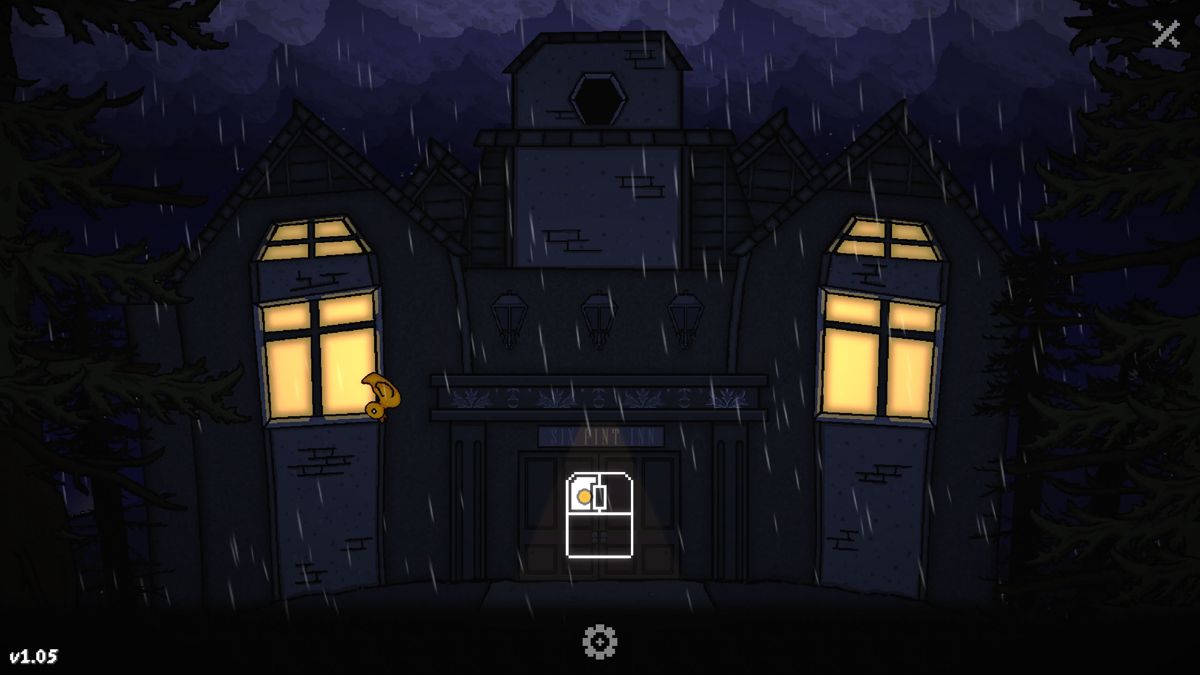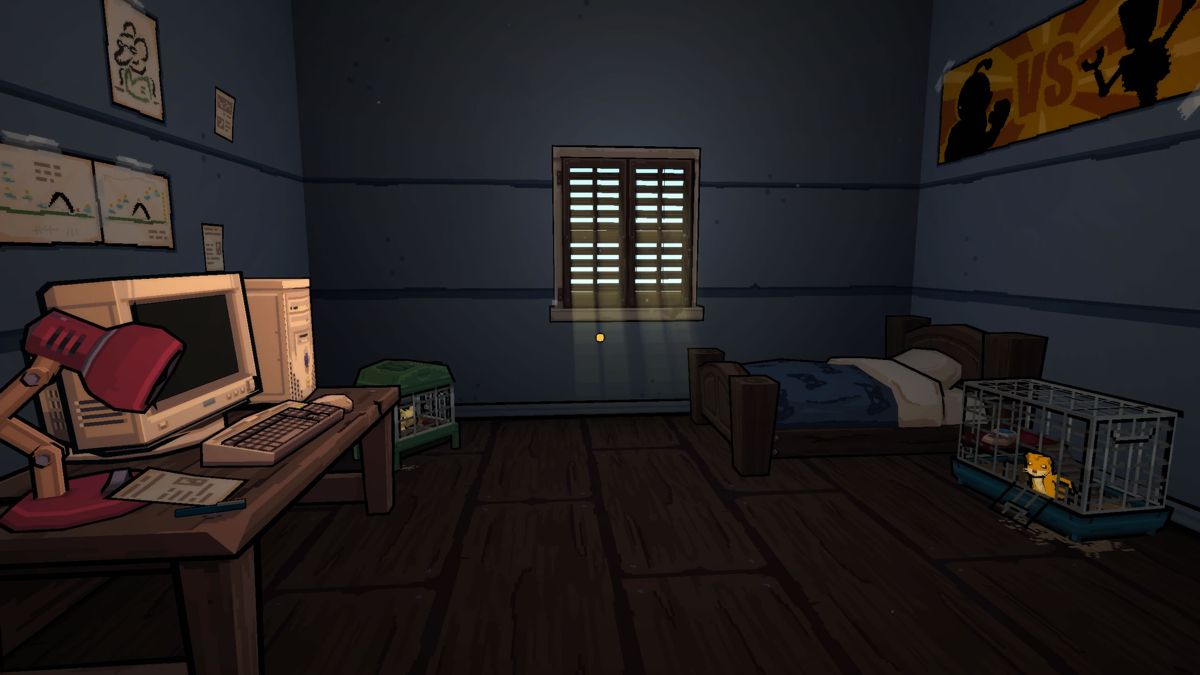Strange Gaming Diaries: The Hex, by Daniel Mullins Games

to start this little series, I want to write on all the games I've completed since the start of the year! this will make the first game The Hex by Daniel Mullins, who you probably know better as the guy what made Pony Island and also Inscryption. I hadn't heard as much about The Hex before playing it, and it certainly didn't make as big of a splash in Content Land as the other two, which were immediate darlings of indie gamers and video essayists following their release.
having played through all three games, I find this to be a big ol' shame. sure, it makes sense—The Hex lacks a satisfying core gameplay mechanic by necessity of its nature as a compilation of six games in one, and it leaves significantly fewer mysteries behind than its siblings by the end of it all. but I think it's that lack of ominous ambiguity that allows it to tell a much more heartfelt and personal story, and really strike at the heart of its theme: games, and the people who make them.
The Hex takes you through a series of six games, though it doesn't take long at all to realize that these are not meant to be self-contained experiences at all. instead, every one of them starts out normally but ends up going sideways in some way or another, ultimately reaching outside the bounds of the game-within-a-game to tell a part of the greater story that ties them together.
there's an interesting sort of multi-layered fourth wall we're given: there are these six video games, all of which are developed by the same in-universe game developer, Lionel Snill. The Hex breaks this "inner" fourth wall very very often, with its main setting The Six Pint Inn seeming to exist outside of it altogether, and its story remarking upon the sub-games' development and the life of their developer very often, but almost never is the second wall behind which the player sits broken! it's a well-used narrative construct, and one that makes it easier for the game to talk about itself and its core themes without feeling like it has to jump out at the player and say "boo".
also, to its credit, some of the individual games are satisfying to play in their own right! "Combat Arena X" is a little puzzle/rhythm game wearing the style of a 2D fighter, "Waste World" is a neat turn-based strategy game, and they all have Daniel's delightful comedic chops. sometimes it can feel like something of a formality to play through the games to get to the story bits, but the story bits were so compelling that I never minded too much.
speaking of which, I want to talk more about the story and am kinda out of surface-level things to remark upon! so if you wish, dear reader, come with me as we...
⚠ ENTER THE SPOILERZONE ⚠
over the course of the game, it's revealed that all of these video game characters are actually something like living people themselves, employed (and seemingly granted sapience in the first place) by the nefarious corporation Gameworks to participate in video games through some sort of techno-arcane tomfoolery that the game is content to leave broadly implied instead of explained.
this is ultimately the narrative core of The Hex: the relationship between developer and game is made literal, and the main characters all have a bone to pick with their shared creator for the mistreatment of their worlds.
 Lionel's childhood room, as portrayed in one of the game's last sections
Lionel's childhood room, as portrayed in one of the game's last sectionsit's the story of a plucky indie dev turned celebrity studio leader, the people forgotten after contributing to his success, and his transformation into a vengeful, possessive jackass. it's a trajectory countless creators of early-2010s indie darlings ended up falling into, most prominently shown by minecraft's creator notch, as the indulgences of stardom exacerbated their worst tendencies.
it's a story about the artistic integrity you risk by being convinced that the capitalist ideal of perpetual growth is the only meaningful path for a creator; an exploration of the mindset that treats games as products rather than fulfilling works of fiction.
it's a story about respecting the things of the past, the consequences of constantly trying to deny its influence and existence, and how it can stunt your growth as both an artist and a person.
but the reason why The Hex's story stuck with me so much more than those of its siblings is that by the end of it, you're given a brutal, bone-chilling reminder that these are people who hate each other, people willing to commit horrible, destructive acts for the sake of bitter, spiteful revenge.
because the story goes like this: a game developer is convinced by a greedy corporation to treat his beloved creations and his trusted collaborators as disposable assets. the creations band together to kill him, and one of his collaborators puts an artificial intelligence into the world that wants everything to suffer. a man is beaten and choked to death in front of you, the dramatic music dissolves into horrible static, and the game cuts to credits on a featureless black screen as the sound drones on.
and when all the clever metanarrative was stripped away, I was left with the kind of horrid feeling of complicitness that neither of its two sibling games was quite able to inspire. I think there's something special to that.
Comments
note: these comments are manually moderated, so they have to go through me before they become visible!